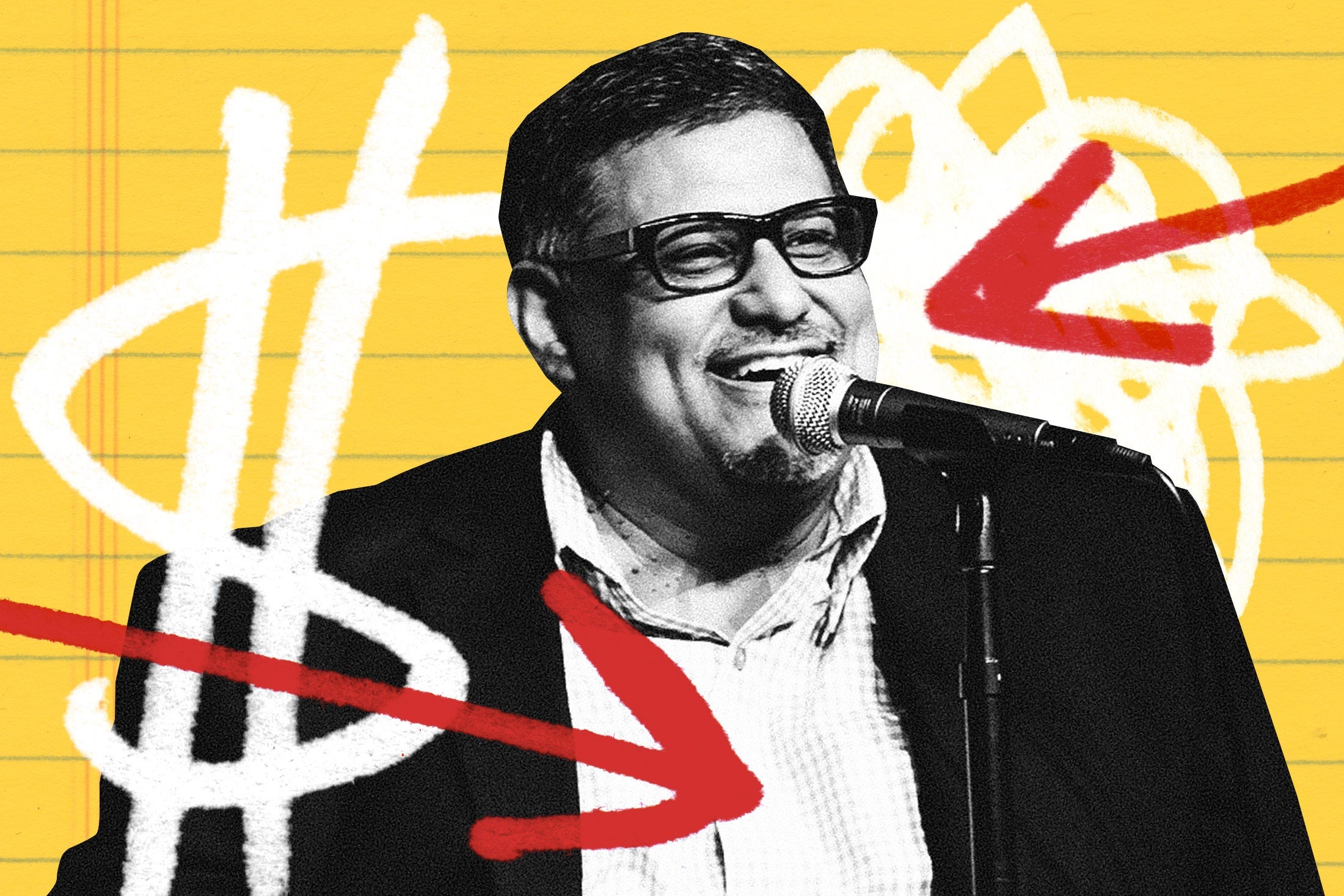Joe Loya had one goal while serving two years in prison: “I know what I’d do when I get out. I have a future in crime, and it’s bank robbery.” Loya went on to rob more than 30 banks before he was caught and sent back to prison with a seven-year sentence. The experience changed him, and he’s since become a published author and public speaker—he even consulted on the film Baby Driver, where, in the ultimate role reversal, he cameos as a security guard.
Loya spoke with Charles Duhigg for a recent episode of How To! and revealed his tricks of the trade. In the excerpt below, which has been edited and condensed for clarity, Loya explains the unlikely source of some of his best bank-robbing advice.
Joe Loya: One thing I picked up real quick: Bank robbers occupy a special place in the prison hierarchy, because of Hollywood. Every Hollywood hunk has played a bank robber.
Everybody has fantasized about it. When I went on my book tour, an old lady with blue hair came up to me and she said, “You know what, I always thought about robbing the bank when I was younger.”
Charles Duhigg: That’s actually why I reached out to you! I’ve always wanted to rob a bank. Because you’re right, it does seem sexy and cool and like—
Loya: It’s a sexy crime. That’s exactly it. It’s a sexy crime.
Duhigg: So how did you learn how to rob a bank?
Loya: When I got out of prison, I went to my parole office, and the guy had a U.S.
Department of Justice book of facts on the coffee table in the waiting room. So I pick up this book and looked at statistics on bank robbery. They had a whole thing in there.
Duhigg: It’s like the coffee table book at the parole office.
Loya: So I look at this thing and I discover from all their statistics and charts that most bank robbers rob far away from where they live for the first bank, and when they get away, they’re so excited, like, “Oh, you know what? Maybe I don’t have to drive an hour away this time. I’ll just go 45 minutes, 50 minutes away, because an hour’s a long time and I need to come back and buy dope, whatever.”
So then what they’ll do is 45 minutes, and it might take them two weeks to muster up the courage to do it again. And so then the third time they do it, they won’t wait two weeks—it’ll be like a week and a half. And then this time they won’t go 45 minutes. They’ll just go 30 minutes. And so [the FBI] can start seeing where it starts far and goes closer, with greater frequency—
Duhigg: Oh, they’re like drawing a line back to their house!
Loya: —and then they’re just frenzying around their house. They can pinpoint where this person is, based on that kind of stuff.
Duhigg: Wait, that was in the book? Literally this coffee table book you’re reading?
Loya: Yeah, yeah, the statistics—this is where I got it from. And so I say, I’m going to flip the script. I’m going to start robbing nearby—I was in L.A.—and with greater frequency, I’m going to start robbing further and further, I’m gonna make them think I live in San Diego. I’m going to go that way. That’s why I frenzied in San Diego and robbed four one day.
Duhigg: So this is the next rule of robbing a bank: Read the books your parole officer leaves on the coffee table. Only joking! The real rule is don’t conform to usual patterns. Don’t get lazy and start robbing closer and closer to home.
And that leads us to the next lesson: Don’t assume that the bank’s security guard is going to stop you from robbing the bank because the truth is the bank oftentimes will let you get away.
Loya: I have robbed two banks in which there was a security guard, and I didn’t care because I was fearless. He was not going to do anything to stop me from walking out of that bank because the FBI doesn’t want gunplay in the bank, and they’re told, “Let ’em go, get all the intelligence you could gather from observing them.” But they don’t want to risk the people inside.
Duhigg: So don’t do what’s expected of you. Don’t run out of the bank and hop in your getaway car. Instead, just calmly walk away—because everyone who works in a bank, they’ve all seen the same movies you have. So don’t act like a movie-star bank robber. Do the opposite.
